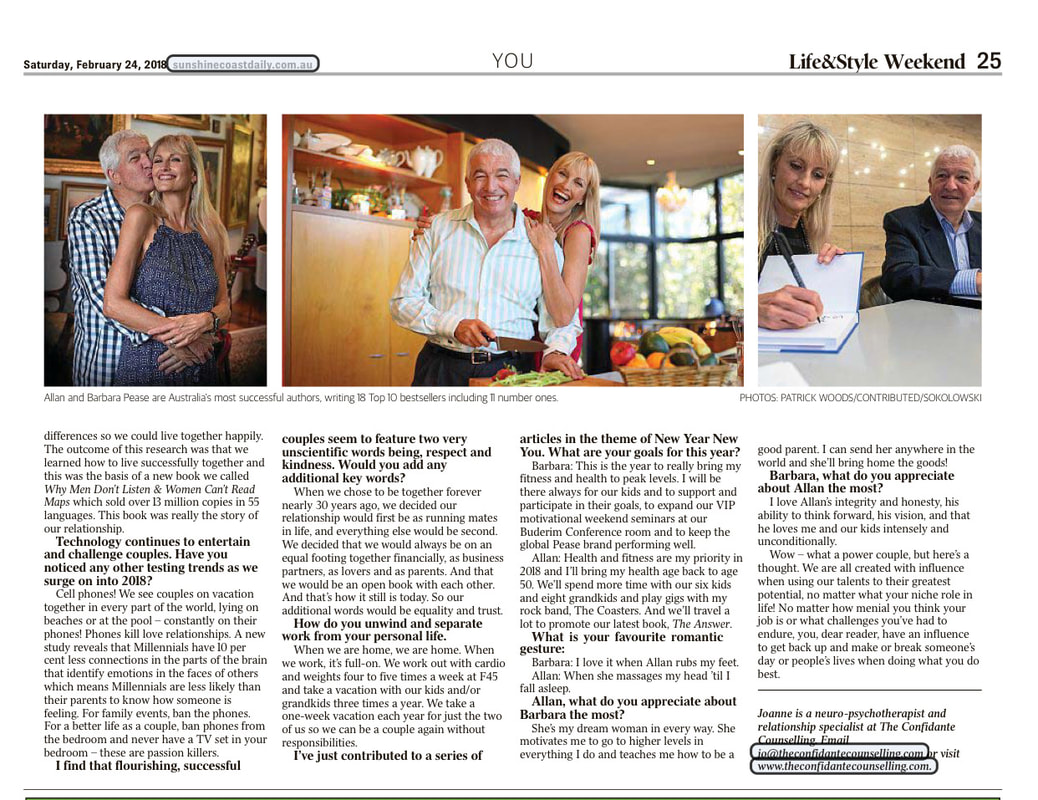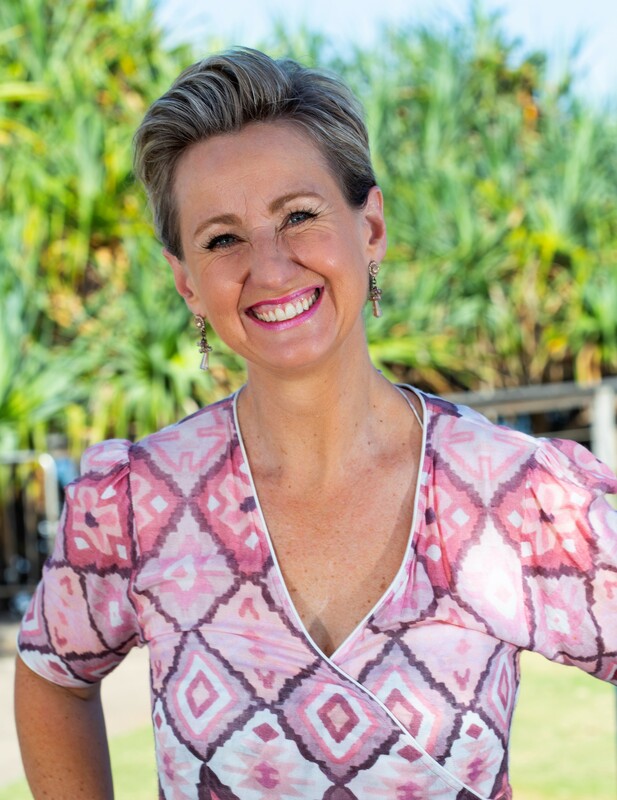|
Each year I notice the final few months of the year feature a significant buckling in relationships as couples try and power through in the lead up to Christmas. The intensity rises due to common struggles such as financial strain, too many social commitments and uncommunicated needs. From my experience, infidelity seems to peak, as does anxiety.
One thing we should all know is how many Australians are suffering from either depression or anxiety. Hopefully as Mental Health week is recognised each year, we are increasingly aware to confront the silent sufferers in the ‘grip of our mental health crisis’ as highlighted by Hugh Mackay, Sociologist, Psychologist and Social Researcher. I’ve been honoured to interview Dr Mackay and look forward to communicating as much wisdom on his wealth of research in the coming weeks. Mackay quotes Beyond Blue in that “two million Australians are suffering from a diagnosed anxiety disorder.” He says, “The good news is that the rate of youth suicide is falling. The bad news is that our overall rate of suicide is still rising… Fortunately, not all of those attempts succeed.” One encouraging glimpse of hope is the work of our very own Sunshine Coast Mind and Neuroscience -Thompson Institute. They are paving the way in ground-breaking research in suicide prevention which looks promising to turn around these statistics significantly. One major theme for Hugh Mackay's work is his observation of our socially-fragmented society evident more than any previous time in our history. Why are our relationships in the community suffering?
There are a lot of folk I know living alone who love hogging the television remote all to themselves. Whilst they can enjoy such benefits as leaving as many dishes on the sink whenever they like, many do experience significant loneliness. Loneliness is said to be in the top three social challenges facing Australia. It sounds like time for Sunshine Coasters to launch ourselves from our enviable surroundings to defy these trends. We are created relationally, are social beings. When we feel loved, secure and attached to our people and surroundings, we flourish. Look beyond the real symptoms of anxiety and you’ll see the social fragmentation behind it. In my experience, loneliness and disconnection is usually the root cause of addictions too. I look forward to revealing more of Hugh Mackay’s work in the coming weeks. In the meantime, do email me to let me know you’ve had a cuppa with your neighbour. Joanne Wilson is a neuropsychotherapist, relationship specialist, radio co-host, workshop facilitator, guest speaker and weekly columnist for the Sunshine Coast Daily. Visit www.relationshiprejuvenator.com for your head start to reviving your relationship and listen in to her podcast discussing these articles and more, "Is This Love?" If you’d like to know more on the Suicide Prevention Program at the Sunshine Coast Mind and Neuroscience -Thompson Institute, visit www.thealliance.org.au and for urgent assistance, contact Lifeline on 131144. What’s the most common reason couples seek relationship counselling? You guessed it, poor communication and conflict skills.
Last week I raised the concept of the non-clinical condition, alexithymia, being unable to identify and express or describe your feelings. These individuals who have difficulty accessing their inner emotional word is said to feature in 10% of the population and yes, more likely, but not always men. Stereotypically, men don't seem to express their emotions as easily, as well, or as much as women do. Interestingly, the unbridled emotion is commonly found at the footy or the cricket when it’s completely acceptable to passionately scream and wave your arms around. It is essential to note that not all blokes shall be tarnished by this same brush. I’ve also encountered many exasperated men struggling to extract the verbal complexities of their woman’s mind. Unfortunately, the blokes characteristically leave the relationship stuff to the women however love and connection is more of a learned team approach. When it goes pear-shaped, the guy will just want to fix it and move on. Interestingly, there is “normative male alexithymia” which is said to be derived from socialisation that “everyone knows real men don’t cry”. Many Aussie boys are raised being emotionally undermined with the messages of stoicism throughout media that masculinity is all bravo and grunt. Talk emotions and you’re a weak sissy. Whilst I believe this is improving, it explains the alarming high male suicide rate. Thankfully, I frequently encounter the effects of this social conditioning when blokes front up for marriage therapy when the relationship features loneliness, disconnection and repetitive conflict. How do we approach this? As we move toward encouraging a generation of expressing instead of repressing, we also can’t label men as “feelingless gender”. Emotions are in there. We collaboratively normalise the ideal that we are all built with emotions and we can all access them. Like any new task, it requires repetition, consistency, positive reinforcement then a wonderful transformation occurs. Not so say, reversing a strongly held socialisation pattern takes time. Men show up with the best intentions to be their woman’s hero, to take action and protect. When women can appreciate and display admiration for these inherent traits are men more likely to be vulnerable to sharing their inner world. Witnessing those magical moments are one of the greatest gifts for a marriage counsellor! Joanne Wilson is a neuropsychotherapist, relationship specialist, radio co-host, workshop facilitator, guest speaker and weekly columnist for the Sunshine Coast Daily. Visit www.relationshiprejuvenator.com for your head start to reviving your relationship or contact Jo at www.theconfidantecounselling.com. Listen in to her podcast discussing these articles and more, "Is This Love?" The Sunshine Coast boasts plenty of courageous champions.
Like our very own vivacious and larger than life Heidi Latcham. She bravely sought to learn as much as she could about herself and relationships on national television in the pursuit of love on reality show, Married At First Sight. Heidi exposed herself, put her heart on the line and in her words, subsequently “got smashed into a million pieces” and changed her whole perspective about life and how she perceives relationships. You might not think so, but to me, that’s bold and audacious! While you might consider her motives were self-serving, this is where the new Heidi Complex unexpectedly came to fruition. What does the Heidi Complex have to do with relationship therapy? It’s called complex for a reason because it involves relationships. To explain further, Heidi was paired with an aesthetically matched rather handsome Australia dude aptly named, “Mike”. Following the literal whirlwind flurry of “marrying” at first sight at the altar. Excitedly, they were flown on their honeymoon to a gorgeous, enviable scenic tropical location befitting for television. While languishing and glistening together on the pristine white sand of a secluded beach, newlywed Heidi felt it was timely for a deeper connection. She plucked up the courage to discuss at length her challenging upbringing and subsequent journey to rising above adversity to where she is today. Mike responded along the lines of, “I’m not your therapist, it’s hot — can we go have a swim?” As you could imagine, it's part of my research role as a relationship therapist to tune into what my couples are watching and talking about. Whilst I may not necessarily agree with the concept of such shows, not only did I spill my tea, turns out, the famous “beach scene’ had many scorned and lonely women of Australia, leaping from the couch exclaiming, “I get you, this happens to me!” This echoed on my couples counselling couch too. What exactly were they uniting about? That all too often scenario when a woman seeks to deepen her connection with her man, daringly reveals her innermost sanctum of thoughts for the day for it to be dismissed, rebuffed and cast aside like a rag doll by her seemingly uninterested man. Men don’t seem to express their emotions as easily, as well, or as much as women do. Why is that — and what’s the impact? Is it normal gender differences or can we pathologize this “strong, silent” sex as a condition that requires extended therapy and medication? I’m sure you’re not surprised there’s a label to describe people who have trouble expressing their inner emotional experience called Alexithymia. Before you diagnose and make that psychiatrist appointment for your parent, partner or child, let’s confirm it is not classified as a disorder in the psychology manuals. It’s considered more of a subclinical disorder and a personality trait. What is it exactly? It’s considered to feature in nearly 10% of people and can be primarily part of their personality or a secondary form following trauma. It is being unable to identify and express or describe your feelings. Understandably, these people are more logical, and not so in touch with the difference between their bodily sensations and their emotional inner orientation. They do have emotions but not such a wide range. The tricky part in relationships is, they appear to lack empathy, may seem self-centred and seeming completely unaware of their partner’s deeper feelings. Initiate a conversation involving emotion and an alexithymic will be seemingly bored and distant. They will also deflect the presence of emotion and as an example, label it is as tired or having “something in their eye”. How do we approach this in couple’s therapy? Watch this space next week. Joanne Wilson is a neuropsychotherapist, relationship specialist, weekly columnist for the Sunshine Coast Daily, workshop facilitator and guest speaker. Don’t miss my fun interview on this with Heidi and BarRat from SeaFm on my Is This Love Podcast this week. Visit www.relationshiprejuvenator.com.au/intro for your head start to reviving your relationship. |
Joanne WilsonJoanne will be your Confidante, enabling you to speak freely in complete confidence and serenity. An integrated approach tailored to your specific needs will be utilised.
Categories
All
Archives
October 2023
|
Joanne will be your Confidante, enabling you to speak freely in complete confidence and serenity. An integrated approach tailored to your specific needs will be utilized. Approaches such as Psychobiological Approach to Couple's Therapy (PACT), Cognitive Behavioral Therapy, Solution Focused Therapy and Emotionally Focused Therapy may be incorporated.
Joanne WilsonRelationship Specialist for individuals and Couples online around the world and servicing areas for virtual sessions around Australia and servicing many clients in Queensland including Caloundra, Noosa, Noosaville, Buderim, Mountain Creek, Gympie.
|
Quick links |
|
Queensland - Australia
0409 909 933
www.relationshiprejuvenator.com
|
|
©
2017-2023 The Confidante Counselling . All Rights Reserved
Web Design by Debbie Navarro






 RSS Feed
RSS Feed









